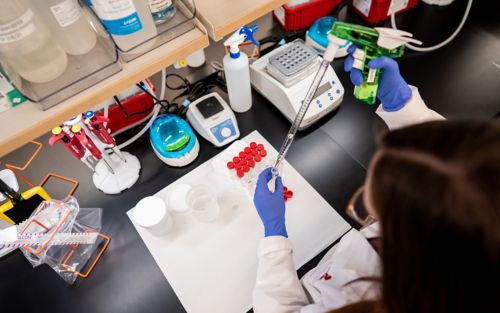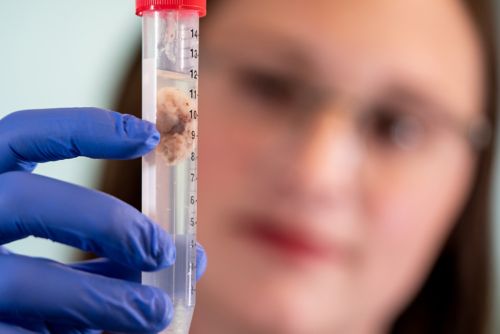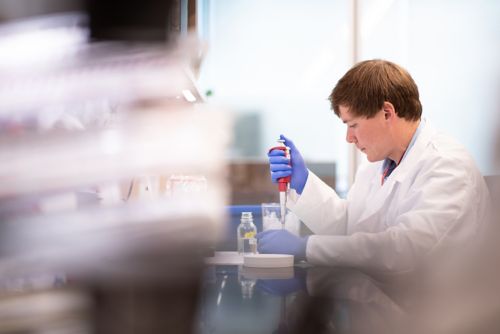St. Jude Family of Websites
Explore our cutting edge research, world-class patient care, career opportunities and more.
St. Jude Children's Research Hospital Home

- Fundraising
St. Jude Family of Websites
Explore our cutting edge research, world-class patient care, career opportunities and more.
St. Jude Children's Research Hospital Home

- Fundraising
Elizabeth A. Stewart Lab
Advancing the understanding of recurrent solid tumors in children
About the Beth Stewart Lab
The recurrence of pediatric solid tumors tends to be aggressive. In our lab, we harness the power of advanced preclinical modeling systems to better understand the cellular and molecular mechanisms at play in the recurrence of these tumors. Through this work, our team identifies vulnerabilities in these tumors and prioritizes the next treatments to be translated into clinical trials for patients with solid tumors.

Our research summary
The research in our lab centers on the molecular and cellular mechanisms responsible for the recurrence of pediatric solid tumors, particularly sarcomas. Our work began with generating patient-derived xenograft models from solid tumors through the St. Jude-led Molecular Analysis of Solid Tumors protocol, which aims to characterize the molecular, cellular, and genetic properties of various tumor types. We used these patient-derived xenografts to generate numerous preclinical models of disease and characterize them through a variety of advanced techniques, including whole-genome sequencing, whole-exome sequencing, RNA-seq, and methylation, among others.
These models help illuminate the biologic characteristics and mechanisms that may play roles in recurrent disease, in particular the specific cell populations that tend to survive chemotherapy and later cause a patient’s cancer to recur. Our preclinical models, coupled with advanced analytical techniques, lead to a better understanding of tumor heterogeneity in recurrent tumors.

To underscore the importance of tumor heterogeneity in our line of research, our lab is using patient-derived xenografts to generate 2D and 3D in vitro models of pediatric solid tumors. These models maintain tumor heterogeneity, an important differentiator from traditional cells lines that often become homogeneous over time and therefore may lose some cell population that are critical in the recurrence of solid tumors.
As information continues to emerge about certain cancer drug combinations, or as targeted drugs become available, our lab vigorously tests these drugs in our preclinical models to prioritize novel therapeutic agents that can be further tested in clinical trials. As an example of the success of this approach, our lab discovered that a class of drugs called PARP inhibitors for Ewing sarcoma led to a better response in our preclinical models when used in combination with chemotherapy. The results of that discovery were later translated into several clinical trials, and follow-up studies are currently being explored in the lab.

The research in our lab has led to the largest collection of well-characterized pediatric solid tumor models and data, which is freely available to investigators around the globe through the Childhood Solid Tumor Network at St. Jude. To date, the network has shared resources generated by our lab with more than 100 different institutions and investigators to advance the study of pediatric solid tumors of multiple histologies.
The core of our laboratory’s work strives to discover insights and share information that fuels further research to advance the understanding of recurrent solid tumors in children.

Publications
This is a brief highlight showing the publications on the page.
Contact us
Elizabeth A. Stewart, MD
Associate Member
Department of Oncology
Department of Developmental Neurobiology
MS 324, Room D2038G
St. Jude Children's Research Hospital

Memphis, TN, 38105-3678 USA GET DIRECTIONS